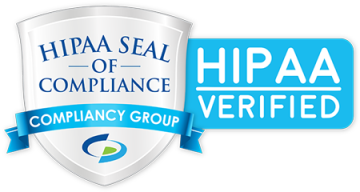Thyroid Cancer
Thyroid cancer is not a common condition in the US. The latest numbers from the American Cancer Society estimate that over 40,000 new cases will be diagnosed in the US during 2021. Due to new and increased detection tools, the number of people diagnosed with this condition has increased exponentially over the last few years.1
Thyroid cancer can be classified into papillary carcinomas (80%), follicular carcinomas (10%), medullary thyroid carcinomas (5 to 10%), anaplastic carcinomas (less than 2%), primary thyroid lymphomas, and primary thyroid sarcomas, with the last two being very rare. Hürthle cell carcinoma is a variant of follicular carcinoma and accounts for less than 3% of all thyroid-related malignancies.2
Risk Factors
Age & Gender
Thyroid cancer, like most thyroid-related conditions, affects women more often than men in a 3:1 ratio. Additionally, the age of onset can also be a determining factor. Thyroid nodules in patients older than 60 years of age and younger than 30 years of age have a higher risk of being malignant.1,3
Radiation Exposure
Radiation exposure has been proven to be the most important risk factor associated with thyroid malignancies. Head and neck radiation treatments in children are a known risk factor for thyroid cancer. Moreover, the risk increases depending on the length and dose of the treatment.3
Nuclear power plant accidents, nuclear weapons testing, and other related events have been linked with a higher incidence of thyroid cancer.
Interestingly, low-dose exposure associated with imaging studies like x-rays has not been directly linked with thyroid cancer.1, 3
Family History
Having a first-degree relative with thyroid cancer increases your relative risk of suffering from this condition.3
Some hereditary conditions are also linked with thyroid cancer. Familial medullary thyroid carcinoma (FMTC) accounts for 20% of all medullary thyroid carcinomas. This condition can also be associated with other tumors, giving rise to what we know as multiple endocrine neoplasia type 2 (MEN-2).3
Other conditions like familial adenomatous polyposis (FAP) and Cowden disease may also increase the risk of developing thyroid cancer.3
Request an Appointment
Please note that although we strive to protect and secure our online communications, and use the security measures detailed in our Privacy Policy to protect your information, no data transmitted over the Internet can be guaranteed to be completely secure and no security measures are perfect or impenetrable. If you would like to transmit sensitive information to us, please contact us, without including the sensitive information, to arrange a more secure means of communication. By submitting this form you consent to receive text messages from CVI at the number provided. Msg & data rates may apply. Msg frequency varies. Unsubscribe at any time by replying STOP.
Treatment Options
Treatment for thyroid cancer will depend on the type of malignancy, staging of the disease, and the overall condition of the patient.
Surgery
Surgery has been the go-to solution for many types of thyroid cancer, and it remains the most recommended option overall for primary thyroid malignancies.
Papillary carcinomas are usually treated with a thyroidectomy (surgical removal of the thyroid gland). Small tumors that remain localized may be considered for a lobectomy (surgically removing the affected side of the thyroid).4
Follicular carcinomas are not always easy to classify. Therefore, some guidelines recommend a lobectomy first. If the tumor turns out to be malignant, a second surgery is performed to remove the remaining thyroid tissue (completion thyroidectomy).4
Medullary thyroid carcinomas are usually treated with a thyroidectomy and removal of the lymph nodes. 4
Anaplastic carcinomas have a tendency to spread outside of the thyroid tissue. Therefore, the role of surgery for this condition is limited to localized cases which unfortunately are not very common.4
Lymph node removal during surgery is assessed depending on the type of malignancy and the staging of the disease.
Radioactive Iodine (RAI) Treatment
RAI therapy can be used after surgery to destroy any remaining thyroid tissue that might have been left after a thyroidectomy. It is usually helpful for patients with papillary and follicular carcinomas. However, it is of no use in cases of medullary thyroid carcinoma (MTC) and anaplastic carcinoma due to the fact that these tumors don’t take up radioactive iodine.4
Additionally, RAI can be used to trace thyroid tissue and cancer cells outside of the thyroid.
Targeted Drug Therapy
Some drugs have been manufactured to specifically target certain proteins commonly found in cancer cells. These drugs have a different mechanism of action, from preventing new blood vessels to form inside a tumor, to preventing tumor growth by targeting specific proteins.
Drugs like Lenvatinib and Sorafenib have been approved by the FDA for the treatment of differentiated thyroid cancer (DTC) that is refractory to radioactive iodine (RAI) treatment.1, 4
Chemotherapy
Anti-cancer drugs like Dacarbazine, Vincristine, and Doxorubicin have been used for the treatment of thyroid cancer. However, due to the good results seen with the surgical approach, chemotherapy is often reserved for anaplastic thyroid cancer and other thyroid malignancies that do not respond well to other treatments.4
Radiation Therapy
Localized beam radiation is usually used for conditions that do not take up radioactive iodine and have spread outside the thyroid, like medullary thyroid carcinoma and anaplastic thyroid cancer.4
Radiofrequency Ablation (RFA) for Thyroid Cancer
Radiofrequency Ablation (RFA) is a minimally invasive procedure that uses high-frequency alternating current to create focalized heat, achieving tumor size reduction with little to no risk of damaging the surrounding tissues.
The use of RFA in the treatment of thyroid cancer is mostly associated with recurrent thyroid malignancies. In some studies of RFA in patients with recurrent thyroid cancer, the rate of complete nodule disappearance after RFA was approximately 67%.5
Even though surgery remains the gold standard for the treatment of primary thyroid cancer, RFA has proven to be a good alternative for patients that either do not want surgery or are have a high surgical risk.5,6
Some studies have analyzed the use of RFA for palliative treatment for patients with anaplastic thyroid carcinoma and medullary thyroid carcinoma. However, the evidence is not strong enough to make a recommendation.5
Promising results regarding the use of RFA for low-risk papillary thyroid microcarcinoma have been published. However, more studies need to follow this line of research to establish a formal recommendation.6

We are Here to Help
Request an appointment to meet with our RFA specialist who will review your imaging, labs and history to determine if you are a good candidate for the procedure, and the outcomes you can expect. Each person is an individual and should discuss the potential risks and benefits of thyroid RFA with our doctor to decide if this is the best option.
Appointments are available via an online video telehealth platform or in person in Los Angeles, California. Why should you choose us? Read here.
Contact Us Today
Consultations are available via an online video telehealth platform or in person in Los Angeles, California. Why should you choose us? Read here.
1.) Key Statistics for Thyroid Cancer. American Cancer Society. Cancer Facts & Figures 2021. Atlanta, Ga: American Cancer Society; 2021. https://www.cancer.org/cancer/thyroid-cancer/about/key-statistics.html#references
2.) Pramod K Sharma, M. D. (2021). Thyroid cancer. Practice Essentials, Overview, Clinical Presentation. https://emedicine.medscape.com/article/851968-overview#a1
3.) Thyroid Cancer Risk Factors. American Cancer Society. Atlanta, Gahttps://www.cancer.org/cancer/thyroid-cancer/causes-risks-prevention/risk-factors.html#written_by
4.) Treatment of Thyroid Cancer, by Type and Stage. . American Cancer Society. Atlanta, Ga https://www.cancer.org/cancer/thyroid-cancer/treating/by-stage.html#written_by
5.) Kim, J.-hoon, Baek, J. H., Lim, H. K., Ahn, H. S., Baek, S. M., Choi, Y. J., Choi, Y. J., Chung, S. R., Ha, E. J., Hahn, S. Y., Jung, S. L., Kim, D. S., Kim, S. J., Kim, Y. K., Lee, C. Y., Lee, J. H., Lee, K. H., Lee, Y. H., Park, J. S. Guideline Committee for the Korean Society of Thyroid Radiology (KSThR) and Korean Society of Radiology. 2017 thyroid radiofrequency ablation guideline: Korean Society of Thyroid Radiology. https://doi.org/10.3348/kjr.2018.19.4.632
6.) Lim, H. K., Cho, S. J., Baek, J. H., Lee, K. D., Son, C. W., Son, J. M., & Baek, S. M. (2019). US-Guided Radiofrequency Ablation for low-risk papillary Thyroid Microcarcinoma: Efficacy and safety in a large population. Korean journal of radiology. https://www.ncbi.nlm.nih.gov/pmc/articles/PMC6923213/
The above information explains what is involved and the possible risks. It is not meant to be a substitute for informed discussion between you and your doctor, but can act as a starting point for such a discussion.









